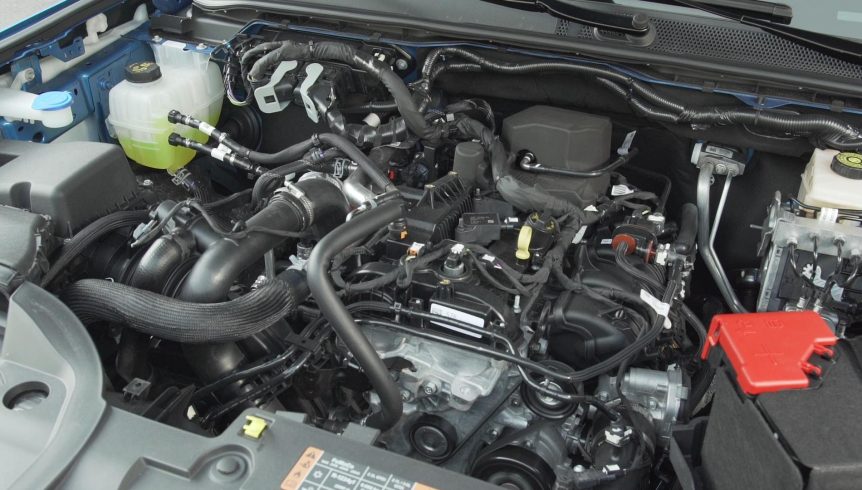How the 2.2 Ford Ranger Engine Stands Out for Durability and Power in Tough Conditions
How the 2.2 Ford Ranger Engine Stands Out for Durability and Power in Tough Conditions
Blog Article
What Makes a Vehicle Engine Run Efficiently: Leading Tips for Optimum Care
The smooth procedure of an auto engine is fundamental to both efficiency and longevity, making optimal care a crucial responsibility for lorry proprietors. What particular steps should you prioritize to ensure your engine remains in peak condition?
Normal Oil Modifications
One of the most critical aspects of automobile upkeep is ensuring your engine obtains routine oil changes. Engine oil lubricates inner components, minimizes rubbing, and helps preserve ideal operating temperature levels. In time, oil weakens as a result of heat, pollutants, and the all-natural byproducts of combustion, resulting in reduced effectiveness and possible engine damage.
The majority of producers suggest transforming the oil every 5,000 to 7,500 miles, yet this period can differ based upon driving conditions and oil type. Artificial oils might permit for longer periods between changes. Regular oil modifications not just enhance engine performance however likewise boost fuel performance, as clean oil advertises smoother procedure.
Ignoring oil adjustments can lead to sludge accumulation, which hinders blood circulation and can cause serious engine concerns. It is vital to examine oil levels regularly and check for any uncommon adjustments in shade or uniformity, which might show contamination or deterioration.

Keeping Coolant Levels
Maintaining correct coolant degrees is important for avoiding engine overheating and ensuring optimal efficiency. The coolant, commonly a blend of water and antifreeze, distributes via the engine, soaking up warm and avoiding thermal stress. Not enough coolant can bring about enhanced engine temperatures, which may cause severe damage and even total engine failure.
To preserve ideal coolant degrees, frequently inspect the coolant tank, usually situated in the engine bay. Guarantee the coolant is loaded to the suggested mark, as suggested in your automobile's owner manual. It is a good idea to examine the levels at the very least once a month or eventually trips, especially during severe weather.
If you discover that the coolant level is continually low, there might be a leak in the cooling system, which need to be attended to promptly to prevent additional complications. 2.2 ford ranger engine. Furthermore, flushing the coolant system every a couple of years can assist remove any kind of gathered particles and ensure effective warm exchange
Checking Air Filters

It is recommended to inspect the air filter every 12,000 to 15,000 miles, or a lot more frequently if driving in messy or adverse conditions. An easy aesthetic inspection can often expose whether the filter is unclean or damaged. If the filter shows up tarnished or has visible dirt build-up, it ought to be replaced promptly.
Utilizing a top notch air filter made for your particular lorry version can additionally enhance engine performance. In addition, some automobiles might take advantage of recyclable filters that can be cleaned up and re-installed, offering a eco pleasant and cost-effective option.
Inspecting Glow Plugs
Glow plugs are important elements of an automobile's ignition system, straight influencing engine efficiency and effectiveness. They produce the trigger that fires up the air-fuel blend in the combustion chamber, facilitating the engine's power generation. Routine evaluation of ignition system is important for maintaining ideal engine function and avoiding prospective issues.
During an examination, look for indicators of wear or damage, such as cracks, carbon accumulation, or excessive void widening. A healthy stimulate plug usually displays a brown or tan color. Dark soot or oil down payments can indicate incorrect combustion, while a raw or white look might recommend getting too hot. Both problems require immediate interest to prevent additional engine damages.
It's suggested to inspect stimulate plugs every 30,000 miles, or as advised in your vehicle's owner guidebook. In addition, consider replacing them according to the producer's guidelines, as old or worn trigger plugs can bring about misfires, reduced gas efficiency, and my sources increased discharges.
Tracking Tire Pressure
Under-inflated tires can lead to decreased fuel effectiveness, increased tire wear, and compromised handling. Normal monitoring of tire pressure is necessary for optimal automobile operation.
Tire pressure need to be examined at the very least as soon as a month and previously long journeys. Use a dependable tire stress scale to gauge the stress when the tires are chilly, preferably prior to the vehicle has actually been driven for at the very least three hours. Refer to the vehicle's proprietor manual or the placard situated on the vehicle driver's side door jamb for the supplier's advised pressure degrees.
It is very important to note that tire pressure can rise and fall with modifications in temperature level; a decline of 10 ° F can cause a 1-2 psi decrease in pressure. Furthermore, aesthetically evaluate tires for any type of indicators of wear or damage during your tracking regimen. Preserving correct tire stress link not just enhances automobile safety and security but likewise boosts gas efficiency and prolongs tire life, ultimately adding to a smoother engine efficiency.
Conclusion
In verdict, keeping an automobile engine's smooth operation calls for attentive focus to a number of vital factors. Regular oil adjustments, proper coolant levels, tidy air filters, well-kept trigger plugs, and optimal tire stress collectively add to boosted efficiency and longevity. Abiding by these upkeep techniques not only boosts fuel efficiency however likewise advertises a safer driving experience. Inevitably, a positive strategy to engine care is important for guaranteeing integrity and functionality gradually. 2.2 ford ranger engine.
One of the most vital aspects of cars and truck maintenance is guaranteeing your engine obtains routine oil modifications. Engine oil lubricates inner parts, lowers rubbing, and aids preserve optimal operating temperature levels. Normal oil changes not only boost engine performance but additionally enhance gas effectiveness, as tidy oil advertises smoother operation.
Insufficient coolant can lead to raised engine temperature levels, which might create serious damage or even total engine failing.

Report this page